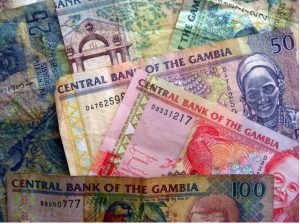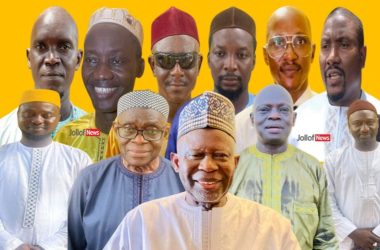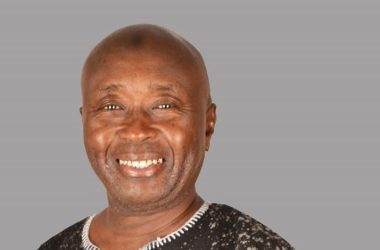
(JollofNews) – Mr President please, allow me to write this open letter to you regarding our beloved nation the Gambia.
The Gambia saw a new dawn on the 2nd December 2016 when the citizens exercised their democratic mandate to put an end to tranny. A lot has passed since then, however I will not dwell on the past but concentrate on the future of our nation. Since your election you have asked Gambians both at home and in the diaspora to fully engage your government in suggesting and discussing ideas in order to build a prosperous nations. Gambians have heeded your call as evidenced by the numerous articles written by well-educated Gambians and friends of the Gambia on various sectors of the economy.
Please allow me to add my humble contribution towards this debate. Mr President I do not possess letters before or after my name like most of the Gambian intellectuals whose advices and articles I had the privilege of reading online, but I do have the knowledge and wisdom from travels in Europe. The Gambian economy has remained stagnant since independence despite the huge amounts of money received both in loans and grants in the same period. Almost every infrastructure in the Gambia is in a state of decay. Your government and your successors will have the unenviable task of rebuilding these infrastructures, the economy and the human resource to maintain them. I know Mr President to this regard you have had numerous advice, suggestions and opinions.
Living in Europe has given me the opportunity to study and closely observe Western Democracy and economics. It has ignited a fascination in me to try to understand the intricacies of how democracy and the economies of the west operates in order to find the secret of success of these developed nations.
Mr President, I belief I know one of those secrets and it is something that if effectively applied in the Gambia will see the country develop into a very prosperous nation within 25yrs. This secret is not expensive to implement but it’s effect on the Gambian society will be profound. Mr President the key is postal address.
Allow me Mr President to give brief explanations of how postal address can help reduce corruption, nepotism and tribalism and at the same time develop the economy. Your government should use the census data and create postal addresses for each and every person living in the country then country can completely switch to digital. Government departments and businesses should not be exempted from this.
Every property should be given a number and a postal code. In situations where there are more than one dwelling in a compound the compound will have the main numbering and all other dwellings label as flat. For example, flat 1 number 1 Marina parade, flat 2 number 1 marina parade and so forth. There should be a legal requirement for every property in the Gambia to have a letter box.
Introduce new biometric ID cards for every Gambian and non-Gambian over the age of 17 and extend this facility to Gambians in the diaspora and their families. Gambians in the diaspora should pay with either debit or credit card into a Gambia government account. This will boost the country’s foreign exchange account balance. Link the postal addresses and peoples’ Tax Identification Numbers (TIN) and their biometric ID cards. Even day old babies should be given a TIN number which should be linked to their parent’s ID until they reach the age where they can have their own ID.
Citizenship and Immigration
The introduction of biometric ID cards with valid addresses and nationality will ensure that in future only Gambians can obtain nationality documents like birth certificates and passports and obtain voters card. This will ensure that our democracy will not be hijacked or made mockery of by non- Gambians or ineligible individuals. Biometric ID cards will allow the government to switch all passport applications from paper to electronic. This will reduce cost on the government and also ensure proper accountability of passport application fees as people will pay online instead of cash. It will eliminate direct contact with corrupt immigrations officials as the completed passports can be sent through recorded delivery to the applicant in any part of the country. Gambians in the diaspora can use their biometric ID card details to apply for passports and pay online for the cost of the passport and postage.
Banking

Government can work with the banks to create a new banking regulation law to enable banks to open accounts for any individual in the Gambia provided they can provide proof of address and a biometric ID card. Businesses and individuals should also be allowed under this new law to create financial products and services at low interest rates. All bank accounts should be linked to peoples’ ID cards and TIN.
This new law should require all payments to government and parastatals be made by debit card or credit card or direct payment into a government account using one’s ID card and also all monetary transactions of more than D400 between individuals and or businesses be completed by using debit or credit card. This should include all property rents costing more than D200 per month. This will allow the revenue authority to correctly calculate landlords’ tax liabilities because the authority can demand bank accounts of individuals if necessary.
Increased number of clients will result in more funds available for the banks to lend money to credit worthy individuals with feasible business plans to start up businesses. This will create jobs and more tax revenue for the government. Government should introduce laws that can allow the creation of credit check mechanisms using peoples’ biometric IDs. Aiding and abetting or not reporting individuals attempting to defraud the state should carry a custodial sentence. This will deter people from trying schemes to circumvent the limit on cash transactions. A reduction in cash transactions will also mean a reduction in replacing worn out bank notes thus resulting in further savings for the government.
Taxation
Postal addresses will allow government to widen the tax bracket to include more people. Mr President the current tax system is heavily reliant on people in the formal sector, whilst many people in the informal sector hardly contribute a Butut to the nation’s coffers. Regulating how businesses operate in the country will drastically reduce if not eliminate the black market trade which is destroying the economy. Every black market transaction is a loss of revenue to the government. The government can use postal addresses to create council tax banding for all properties in the country. An example of this can be D5 per month for a typical single room in the Kombos. All council tax should be paid into a government account and government can redistribute the money fairly amongst the various local government areas.
Customs & Excise
Government can create online only forms for import and export of certain commodities as a start with a vision to make all forms online only. The first items to be online should be vehicles, electric appliances, electronic appliances, medicines and bulk items like rice, sugar, oil, potatoes, onions, soft drinks, alcohol, tobacco, cement and other building materials. At the completion of the application process people should be given the value of the custom duty to be paid online. This will again mean money going direct into the government’s account and eliminating direct personal contact with corrupt customs officers who regularly fleeced both the people and the government. This will further increase the nation’s foreign exchange reserve as people in the diaspora will pay in their respective foreign currency and send the receipt to their family to collect the goods. People should be required to pay online for road tax number plate and any other legitimate charges when sending vehicles to the Gambia. This will greatly reduce the haemorrhage of funds from the state.
Agriculture
Banks will be able to support credible individuals with good business plans to start up agribusiness enterprises like poultry farming, meat farming, dairy farming and horticultural enterprises. This will ensure food sustainability, lower cost of living, improve the physical and mental health of the nation, create jobs and increase government tax revenue. Mr President having postal addresses link to peoples TINs and biometric IDs will eliminate the risk of bogus loan applicants as was the case in the first republic. Many Gambians will remember how the defunct Gambia Commercial Bank and the Agricultural Development Bank were lending money to ghost applicants which bankrupted both institutions. With credit check mechanisms in place successful applicants can borrow money at low interest rates depending on their credit score.
Healthcare
Our healthcare is modelled on the British NHS, free at the point of delivery. With every individual in the country having a postal address, the government can restructure the primary care system to include family Doctors for everyone in the country. Family Doctors will then be the first point of call for everyone except in cases of emergencies where urgent specialist intervention is required. The family doctor can examine patients and if necessary refer them to the hospital for specialist input or prescribe medications for individuals to buy from a pharmacy of their choice. The government should only pay for urgent care in hospital. This can reduce the government’s drugs and medicines bill. To ensure that the public is not been taken advantage of by unscrupulous pharmacies, the government should introduce standard charges for certain medications like antibiotics and strong analgesics.
Education
All scholarships and training opportunities should be advertised online and all applications made online. This will ensure a level playing field for all applicants.
Insurance
Insurance laws in the Gambia should be changed because it is not the vehicles that causes accidents but the persons in control of the vehicles. Therefore it will make sense to insure the driver instead of the vehicle. Good drivers can have their premium reduced yearly whilst bad drivers get an increase. This will teach people to act responsibly behind the wheel thus reducing the number of crashes on our roads.
Motoring
All vehicles in the Gambia should be on the Automatic Number Plate Recognition (ANPR) database. This will allow police officers to be more effective in dealing with offending motorist and eliminating the need for the countless check points which are many motorists’ nightmare and also creating opportunities for corrupt police officers. The ANPR should allow police officers to have instant access to information like the registered owner of the vehicle, insurance and tax status of the vehicle.
The government can save a lot of money by getting rid of tax discs on vehicles and instead rely on the ANPR system. Offending motorists can be given penalty points and fines. With the biometric ID card linked to peoples’ TIN and driver’s license the police can send all fines to the banks if individuals fail to pay within 28 days. Vehicle ordinance test can be introduced and make mandatory in the long term. With all bank accounts linked to biometric IDs and TINs, the government will be able to recoup any money due to the state be it tax liabilities or fines.
Policing and Crime
Police will be able to respond to incidences and crime much quicker and effectively. Postal addresses will make identifying individuals much easier and also create a criminal database which can be used by institutions in their recruitment processes to check potential employees’ suitability for certain jobs. Examples of such jobs will be the security services, financial institutions and working with vulnerable members of the society like women, children, the elderly and the sick. Mr President, this will ensure that there are long term consequences for crime. People will think really hard before committing crime when they know that the consequences can last for a long time and for some crimes a life time.
Nepotism
The government should require all employers to advertise all vacancies online and open to all Gambians both in the country and the diaspora. This will provide employers with a large pool of talented applicants to choose from instead of the current system of people telling only their relatives and family members of job opportunities. When jobs are advertised online all Gambians will see and know the requisite qualification and pay scale for the job. This will make all sectors of the country equal opportunity employers. When people get jobs based on merit, it gives them pride in their job and they strife to make a positive impact in their job unlike people who were given jobs that they are not qualify for. Such people spend all their working life trying to placate the person who gave them the job. Placing all job adverts online will increase transparency and accountability. Aggrieve applicants can complain to the ombudsman to have their complaints reviewed.
Communication
Telecommunication companies will be able to introduce products and services that can reach a wider population than is currently achievable. This will be vital in a new digital Gambia. The services of telecommunications companies can be complimented by that of the postal service and businesses and individuals who create courier services.
Transport And Other Small Scale Businesses
The Gambia can be included in various satellite navigation systems. People can create taxi firms to make travelling between places much easier. Other small businesses such as fast food restaurants, cosmetic shops, and artisan businesses can also use the postal address system to increase their clientele by using online sites and delivery services. This will create more jobs and more tax revenue for the treasury.
Mr President I know you have some lofty ideas about how to develop the country. However you should try and get the basics right first before embarking on big development projects. The Gambia has been dependent on loans and grants in both the first and second republic for development projects, let’s try and break away from that habit. The above proposal will ensure a steady stream of revenue for the government which can be used for project development and maintenance. Jarawa’s Singapore project and Jammeh’s Vision 20/20 all failed because they were based on loans and grants not on what Gambia government can afford.
Your priority should be getting the basics right, leave big projects like road construction to the next government. If you have to embark on any major project then might I suggest that you prioritize building a proper sewage system for the entire nation? This should be a priority over roads because roads in the Gambia are mostly destroyed by rain water due to lack of drainage. Stagnant water also provides breeding ground for mosquitoes which increases the incidence of malaria resulting in extra financial burden to individuals and the state.
Mr President the above is by no means an exhaustive list of the sectors that can be positively impacted on by postal addresses nor is it a complete in depth analysis of its impact on the sectors I have mentioned above. This open letter to you Mr President is to start a debate on the issue. Whilst I am confident that if the above proposal is adopted it will change the country for the better, I am aware and sure that there are many Gambians and friends of the Gambia with the expertise to further develop these proposals into working or workable policies. Mr President I implore you to use the expertise of such individuals to see these proposals through.
Yours Faithful,
Buba Sanyang





To be a strong vibrant nation, The Gambia needs leaders that are committed to strong institutions, law and order, a stable robust economy, respect for human rights and dignity and distaste for corruption to name just a few as I concluded from Buba letter. My hope is that Mr Barrow will read Buba’s open letter, use his good judgement and love for his motherland to make decisions in the best interest of Gambians. Finally it takes a very special human being to resist the intoxicaton of power and wealth, we pray for our President that Allah will grant him the strength and discipline of the awesome responsibility of the office of president. We all are aware of the story of a poor young man who took office by force, got intoxicated with power and money and made a complete mockery of the office of president and a buffoon of his person. Allah will spare our dear nation such calamity this time around.
Dr Sarr, with people like you engaged in Gambian politics, i have hope that things will get better. We all have to be steadfast in our quest to leave a better Gambia to our children and their children’s children.
Buba, on the subjects of The Gambia going digital with Biometrics, Electronic Banking and Revenue Collection, I couldn’t agree more! I will come up with additional commentary on these and other subjects in the next few days.
However, I will say that The Gambia must come of age embrace and adapt modern world technologies to help tackle the seemingly endless difficulties that the nation has been experiencing in the areas of revenue collection and budgeting.
For a start, The Gambia can do away with the archaic system of payments for taxes, fees and services to government agents that clearly have other intentions with revenue collection.
Gambians already pay fees associated with US Visas and National Passports to local banks. Both systems work flawlessly in terms of accounting for funds collected. The US Embassy or the EU can certainly help in this endeavor as part of supporting good governance and my head spinner, “Poverty Alleviation”!
Why would the government not expand this approach to revenue collection for all services and facilities offered by local and central government for the object of TOTALLY DOING AWAY WITH FACE TO FACE REVENUE AND FEE COLLECTION that is fraught with malfeasance and subject to the whims and caprices of government revenue collection agents??? Remove the HUMAN ELEMENT that perennially adds to the conundrum!!
The discussion will be continued in another segment.
Thanks Buba!
Andrew, i know you will contribute positively towards this debate. I agree with all the points you made in your commentary. We should not let naysayers distract us.
I want to echo Dr Isatou Sarr’s prayer that Allah spares us the calamity this time around!
However, the calamity still looms in the shadows in The Gambia.
Only when we collectively commit to instilling stronger moral values, work ethic, robust policies and structures in support of our collective goals can we resuscitate this ailing Gambia of ours.
I have said this before and will repeat it here that one doesn’t have be exclusively home grown, belong to a political party of favor or home based to be an advisor on policy matters or strategies that will help to move our dear nation forward!
In a tiny nation that is The Gambia, there’s too many folks jockeying for positions in government, fighting for patronage and looking out for themselves to the extent that the noise becomes deafening and confusion/chaos abound.
Too many professors and too few listeners in The Gambia!!
Good morning, While the above open letter is very sound, there is no way with the electric off for up to 20 hours a day this system could be implicated.
People can not afford a computer even if the electric was on 24/7 so it would be very hard for them to pay their way on line. They have no money for rice let alone putting money into banks for standing orders. Post boxes , new roads, drainage, better control on cars and insurance are all wonderful ideas, but the basic’s have to be put into place first of all. Electric and water full time is the first step forward.
Kind Regards and i wish the whole of Gambia a happy full future.
Lynette, thanks for your contribution. You have raised some good points, however lack of electricity has very little to do with Gambians and businesses in the Gambia having postal addresses. Currently Gambians wanting to travel to Europe and USA are using online application system for Visa applications so why can’t certain government transactions be online? Most Gambians might not be able to buy a computer but that will create business opportunities for others to open internet cafes. The entire government machinery doesn’t have to go digital at the same time. It will be gradual, starting with some of the ones that are named above. Nothing is impossible Lynette if we put our minds to it. This is not a stand alone proposal, the president has stated electrification of the country as one of his priorities in his inaugural speech so power supply won’t be a mature issue by the time all the logistics of implementing a digital nation are completed. Lynette, you said Gambians have no money for rice let alone paying by standing orders, how do you think Gambians pay there bills? They pay in cash the entire amount usually to a cashier, so if people can pay in cash they should be able to pay into a government bank account. Read Andrew’s first comment above and you will see why this is important for government to implement. Thank you.
Buba, in support of your response to Lynette’s comment on the perennial shortage of electricity in The Gambia, I will add that the time has come for The Gambia and Gambians to take bold steps in promoting renewal sources of power. Yes, there are companies marketing solar and wind power with a few installations on the ground but the progress is very slow largely on account of the poor promotional effort on the part of all stakeholders.
I will also add that twelve years ago, most Gambian homes used less efficient incandescent light bulbs but today, about 90% of all homes employ Compact Fluorescent Light (CFL) and Light Emitting Diodes (LED) bulbs in the interest of savings associated with the use of these bulbs. So, if the government was to offer attractive back end tax incentives for homeowner and business investments in wind and solar, I can bet anything that we will see a dramatic uptick in investments. If PURA, in collaboration with the Income Tax Division, was to target every home with a small generator sputtering in the backyard with a full tax credit for homeowner investments in wind or solar, we could well be on the way to creating a sustainable power supply network.
The government can take the additional step of partnering with investors small and large to sell excess power BACK INTO THE NAWEC GRID! It is being done in other places with much success. So what’s stopping Sam Jassey in Kartong from installing solar shingles on half of his roof to generate power for sale to the community. I have visited Sandele Lodge in Kartong where almost everything runs on renewable energy! Transform the non performing village vegetable gardens into solar gardens! I’m confident that Kombo youth will be elated to walk out of a NAWEC office with a check payable Lamin Farabanding or Bintanding Bojang.
Oh No! The NAWEC “planners” will say. That’s too complicated and may not be as feasible as you think Andrew. We also don’t have the mandate or mechanism in place to administer a program at that level of complexity, they’d likely say! Only because the approach may not serve their interests and that they are plain LAZY period!! And yes you’ll also need an act of parliament to see bold policies through. So get to work in earnest and stop soliciting for PROJECTS!
Lynette, why not consider investing in wind power in Kartong or Berending (Kombo South) to generate power for sale? That’ll certainly be a step in the right direction plus you benefit from the intrinsic reward of working to solve the annoying and chronic power shortage in The Gambia. Make hay while the sun shines (smile)!! Buba has got a point in that Necessity is The Mother of Invention! That hold true for The Gambia too Lynette!
I’ll tell the youth of Brending Kang Beng Kaffo to get together, put a Wind Power Enterprise together (NB, not a Project) for the object of generating and selling power to PURA or NAWEC, do a business plan and take plan to Adama Barrow’s office. DO NOT LEAVE UNTIL you get to talk to a BANK that will meet with you to review your business plan for funding. Once you WIN, replicate the same in solar in Kembujeh and Pirang. Think University of The Gambia (UTG), Faraba Campus paying your enterprise for solar power! You may just end up throwing a few FO FORO (whistles) and Kombo ALAHUMA SALO my way for additional blessings to this humble Andrew fellow. Isn’t that what FIRINGO and BARAKO (Manding) are all about?
The Gambia and Gambians must stop kidding themselves that NAWEC can solve the perennial and chronic power shortage. The fact is that NAWEC cannot and will not be able to do this anytime soon.
First, NAWEC is near bankrupt and does not have the resources to purchase the sheer amount of fuel stock required to run the generators full time and even where the EU or the Netherlands and German governments were to come up with regular fuel and Heavy Fuel grants to The Gambia, Adama Barrow would still have to run his generators on account of “NAWEC Load Shedding”.
Second, NAWEC doesn’t have the capacity to maintain an efficient distribution system on account of transmission losses within the grid. Resources invested in power generation and transmission are inadequate to support local demand and expansion. So, it’s not uncommon to see consumers in far flung places on the grid experiencing dimly lit bulbs and low voltage output.
Third, NAWEC cannot continue the practice of manual “Meter Reading and Billing” as the system is inefficient and subject to abuse. They must instead invest in Cash Power Meters with a goal to put all major accounts on Cash Power. Particularly, accounts held by local councils, security agencies and the Big Fish!! DO THE SAME WITH WATER SERVICES!! In the modern world, meter readers, where necessary, take readings remotely from the cab of the work pickup trucks and download the readings to an office computer. Only DC battery power is needed to do that!
My advice is for the leadership at NAWEC to come out in the open (no NIA arrests or firings this time) and tell Gambians why the agency has not been and may still be unable to meet consumer demands even with EU grant funds, EU fuel grants and government guaranteed loans.
Where NAWEC leadership fails to do this, the misery will continue for Gambians and the Open Secret to their incompetence will keep staring everyone in the face! Folks we can make this work but only if we want to! We can pronounce all we want but if public officials don’t want to make it work, no progress is registered.
So home grown folks, if you think that Gambians in the diaspora are the pampered kind and the competition that have not been thinking about and engaged with finding solutions to Gambian problems, think again.
We have been perennially preoccupied with finding solutions on account of our love for our homeland. The majority of Gambians in the diaspora are also very resilient, tenacious, pragmatic and masters at ADAPTATION (smile)!